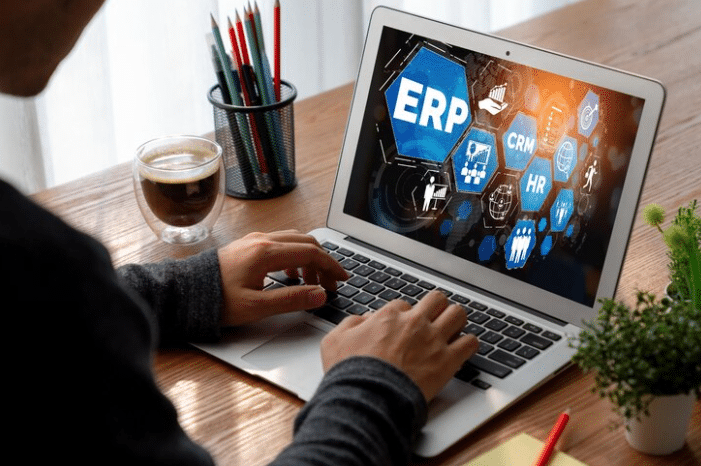ERP (Enterprise Resource Planning) is a crucial tool for small businesses seeking to streamline their operations and maximize efficiency. It’s a comprehensive software solution designed to integrate and manage a company’s core processes and resources effectively. For small businesses, understanding and implementing ERP systems can significantly impact their growth and success.
Benefits of ERP for Small Businesses
Streamlining Operations
ERP consolidates various processes—such as inventory, finance, human resources, and more—into a single system. This integration streamlines operations, reduces manual efforts, and minimizes errors.
Cost Efficiency
By centralizing processes, ERP helps in cost reduction by eliminating redundancies and optimizing resources. It leads to better utilization of manpower and assets, contributing to cost efficiency.
Enhanced Data Management
Small businesses often struggle with data management. ERP systems ensure accurate, up-to-date data across different departments, aiding in informed decision-making.
Implementing ERP Systems
Choosing the right ERP system is crucial. Small businesses should consider their specific needs, scalability, and ease of integration. Adequate training and support during implementation are key to successful adoption.
Challenges in ERP Implementation for Small Businesses
Cost Considerations
Cost can be a significant hurdle for small businesses. Initial investment and ongoing maintenance expenses need to be carefully evaluated.
Resistance to Change
Adopting new software can face resistance from employees. Proper communication and training are vital to overcome this challenge.
Selecting an ERP for Small Businesses
The choice between cloud-based and on-premise solutions depends on the business’s infrastructure, budget, and scalability requirements. Cloud-based systems offer flexibility and accessibility, while on-premise solutions provide more control over data.
Cost Analysis of ERP Implementation
Small businesses must weigh the initial investment against long-term benefits. While the upfront cost might seem high, the long-term savings through efficiency gains are substantial.
Impact on Business Growth and Performance
ERP integration improves efficiency by providing real-time data, enhancing decision-making, and promoting agility. It leads to optimized processes and ultimately fuels business growth.
Security Concerns and Data Integrity
Ensuring data security and integrity is pivotal. Small businesses must implement robust security measures to safeguard sensitive information.
Case Studies: Successful ERP Integration in Small Businesses
Real-life success stories demonstrate the effectiveness of ERP for small businesses. These case studies provide insights and practical examples of successful implementations.
Future Trends in ERP for Small Businesses
With the integration of AI and automation, the future of ERP for small businesses holds innovations in data analysis, predictive insights, and mobile accessibility.
Conclusion
Implementing an ERP system can be transformative for small businesses, enhancing operational efficiency, data management, and decision-making capabilities. It’s a strategic investment that contributes significantly to growth and competitiveness.
FAQs
- Is ERP suitable for all types of small businesses?
ERP can be tailored to suit different business needs. However, the suitability depends on the scale, requirements, and readiness of the business for the implementation.
- How long does it take to implement an ERP system in a small business?
The duration varies based on the complexity of the system and the readiness of the business for the change. It can range from a few months to a year.
- What are the key features to look for in an ERP for small businesses?
Essential features include scalability, ease of use, integration capabilities, and robust data security measures.
- Are there ongoing maintenance costs associated with ERP systems?
Yes, there are maintenance costs, including updates, support, and potential additional modules or features.
- Can small businesses benefit from open-source ERP solutions?
Open-source ERP solutions can be cost-effective but might require additional technical expertise and customization.
